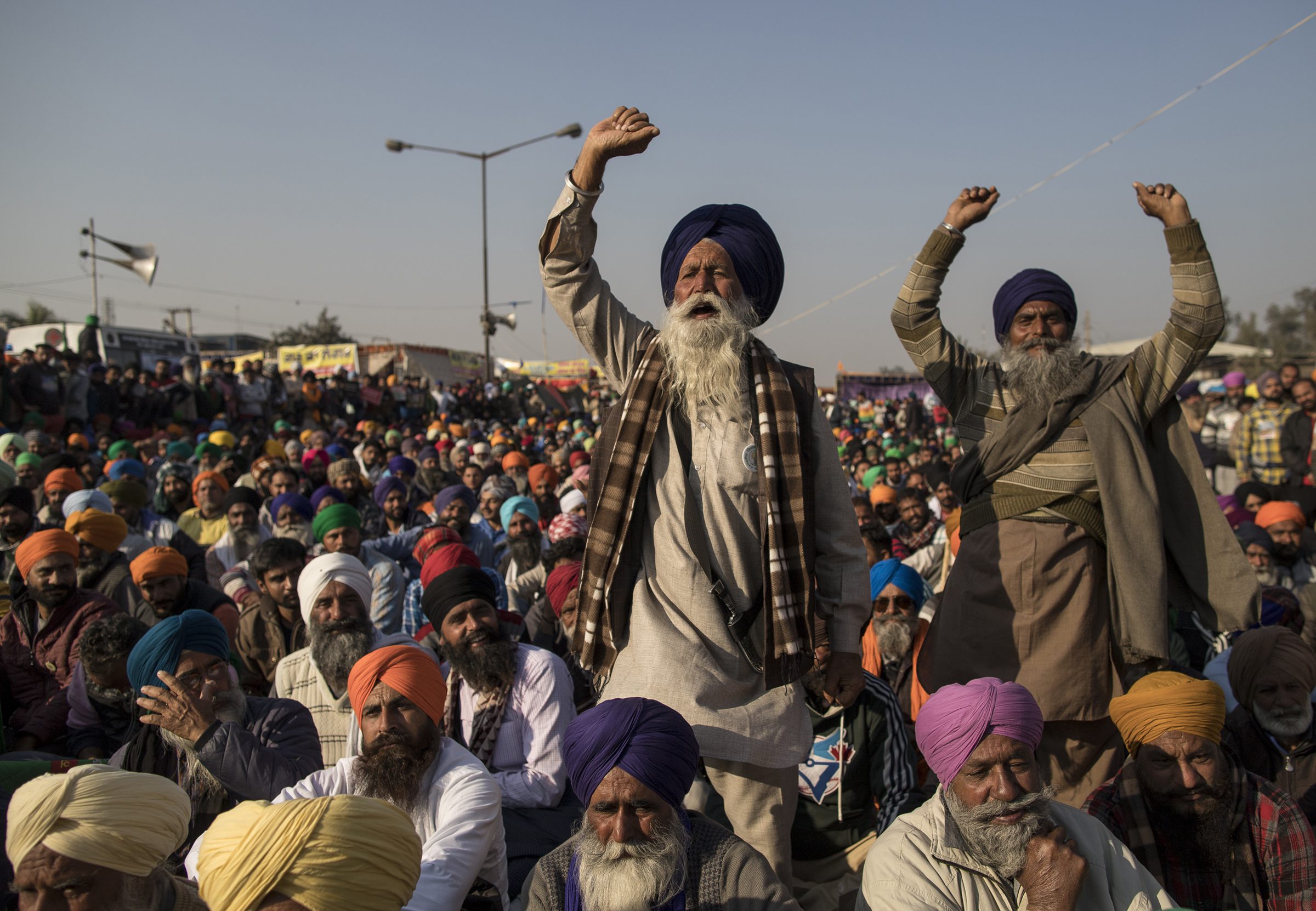Delhi Chalo – Farmer Protest 2024 – The Tilling of Discontent:
Throughout history, the fertile ground of agriculture has also birthed potent seeds of discontent. Farmer protests, a poignant expression of rural struggles, have echoed across continents, demanding attention to the challenges that grip those who feed the world. Understanding these protests necessitates delving into a symphony of factors – from fluctuating prices and unfair policies to land rights and resource access.
A Tapestry of Reasons:
Farmers, the custodians of our food security, often face precarious situations. Fluctuating crop prices, squeezed by market forces and unpredictable weather, can leave them financially vulnerable. Government policies, intended to support agriculture, may sometimes have unintended consequences, leading to protests against unfair subsidies, trade agreements, or regulations perceived as detrimental to their livelihoods.
Land, the very foundation of their existence, can also become a source of grievance. Concerns about land acquisition for development projects, displacement due to natural disasters, or unequal access to fertile land can fuel protests demanding justice and security. Furthermore, access to essential resources like water, fertilizer, and credit can become hurdles, leading farmers to raise their voices for equitable distribution and sustainable practices.
The March of Protest:
The forms of protest adopted by farmers are as diverse as the issues they face. Peaceful demonstrations, marches, and hunger strikes are common expressions of dissent. Blocking roads, boycotting markets, and symbolic acts of defiance like dumping crops aim to disrupt the status quo and capture public attention. In some cases, more radical measures like sit-ins or strikes are resorted to when dialogue fails and frustration mounts.
The Scales of Legitimacy:
Determining the legitimacy of a protest necessitates a nuanced approach. Are the demands justifiable, based on genuine concerns and backed by evidence? Are the methods employed peaceful and non-violent, respecting public order and the rights of others? Is there an openness to dialogue and engagement with authorities or willingness to negotiate for solutions? These are some of the critical questions that weigh in the balance when evaluating a protest’s legitimacy.
However, navigating this terrain is not without its challenges. Biases, preconceived notions, and selective media coverage can cloud judgment. It’s crucial to critically evaluate information from diverse sources, engage in respectful dialogue with different perspectives, and avoid generalizations or stereotypes when forming opinions.
The Media’s Spotlight:
Media plays a crucial role in shaping public perception of farmer protests. Sensationalized headlines, biased reporting, and selective visuals can often create a distorted picture. Understanding the media landscape, its inherent biases, and the power dynamics at play is essential for discerning fact from fiction and forming informed opinions. Media literacy becomes paramount in navigating this complex information ecosystem.
The Chorus of Responsibility:
Discussing farmer protests necessitates responsible engagement. Inflammatory language, personal attacks, and harmful stereotypes only serve to exacerbate tensions and hinder constructive dialogue. Focusing on factual information, respectful exchange of ideas, and empathy for the diverse perspectives involved is crucial for promoting understanding and finding solutions.
Moving Beyond the Symphony:
Farmer protests are a powerful call to action. They highlight the vulnerabilities of our agricultural systems, the challenges faced by those who ensure our food security, and the need for collective action. Recognizing the legitimacy of their concerns, engaging in respectful dialogue, and seeking solutions that address the root causes of their grievances are crucial steps towards building a more equitable and sustainable food system for all.
In concluding our exploration of farmer protests, it’s crucial to remember the human element often lost in the cacophony of news and analysis. Farmers, the custodians of our food security, are often unheard and unseen, their struggles echoing silently across vast fields. We must strive to amplify their voices, understand their unique challenges, and recognize their inherent dignity as essential contributors to our very existence.
The globalized food system, while providing unparalleled abundance, has exacerbated some of the inequalities faced by farmers. Unfair trade practices, volatile markets, and the dominance of large corporations can leave them vulnerable and marginalized. Recognizing these challenges and supporting initiatives that empower farmers through fair trade practices, sustainable production methods, and equitable access to resources is critical.
Technology can also play a role in empowering farmers. Innovations in communication, agricultural techniques, and market access can help them connect with consumers, improve yields, and navigate the complexities of the modern world. However, we must ensure that technological advancements benefit all farmers, not just those with larger landholdings or resources. Bridging the digital divide and ensuring equitable access to these tools is essential to avoid further marginalization.
Ultimately, addressing the challenges faced by farmers requires a multi-pronged approach. Recognizing the legitimacy of their protests, engaging in respectful dialogue, and implementing policies that address the root causes of their grievances are essential first steps. Supporting sustainable agricultural practices, promoting fair trade principles, and empowering farmers through technology can further contribute to a more equitable and resilient food system.
Remember, the symphony of farmer protests is a powerful reminder of the interconnectedness of our world. By listening to their voices, understanding their struggles, and working towards solutions that benefit all, we can create a world where farmers are not just heard, but valued and empowered as the vital force they truly are.




